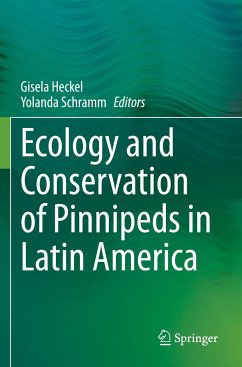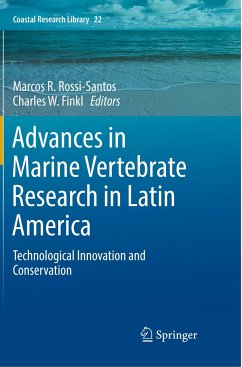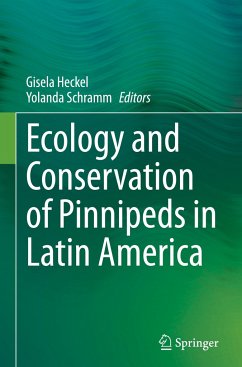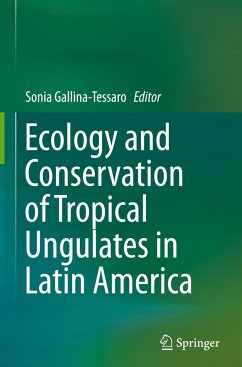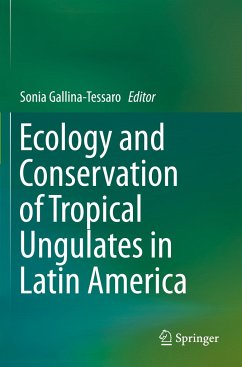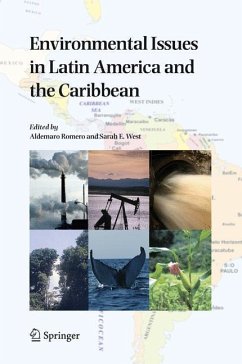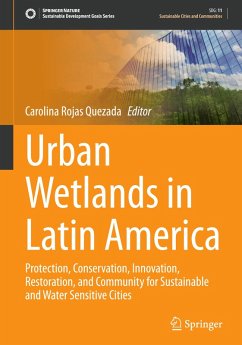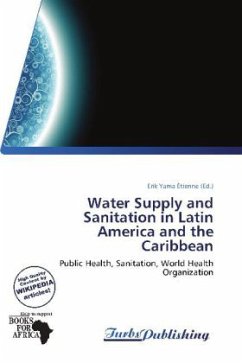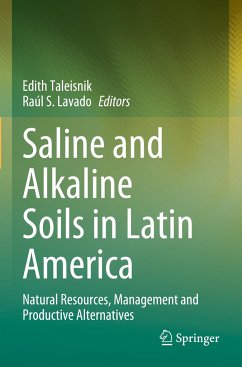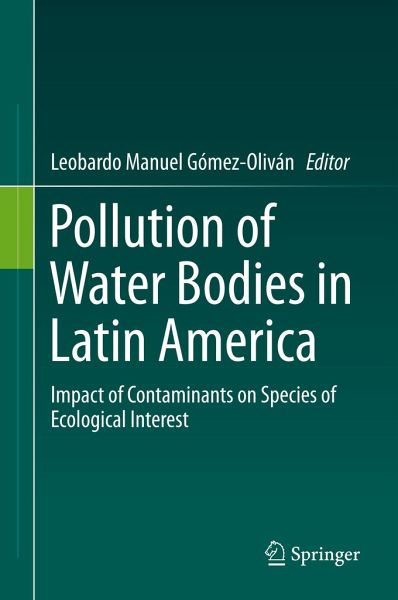
Pollution of Water Bodies in Latin America
Impact of Contaminants on Species of Ecological Interest
Herausgegeben: Gómez-Oliván, Leobardo Manuel

PAYBACK Punkte
38 °P sammeln!
The indiscriminate use of chemical substances in industrial processes and anthropogenic activities, have resulted in the release of these compounds into aquatic ecosystems through municipal, hospital and industrial discharges, producing various undesired effects on the environment and on species of ecological interest. These compounds, such as metals, pesticides, emerging pollutants and other substances are persistent and susceptible to biotic and/or abiotic transformations, yielding metabolites that can be more toxic than the original compounds. In this book, researchers from diverse environm...
The indiscriminate use of chemical substances in industrial processes and anthropogenic activities, have resulted in the release of these compounds into aquatic ecosystems through municipal, hospital and industrial discharges, producing various undesired effects on the environment and on species of ecological interest. These compounds, such as metals, pesticides, emerging pollutants and other substances are persistent and susceptible to biotic and/or abiotic transformations, yielding metabolites that can be more toxic than the original compounds. In this book, researchers from diverse environmental science disciplines share their experiences in countries such as Argentina, Brazil, Colombia and Mexico, and critically examine the problem of contaminants in aquatic ecosystems in Latin America, as well as the risks presented by their presence.




